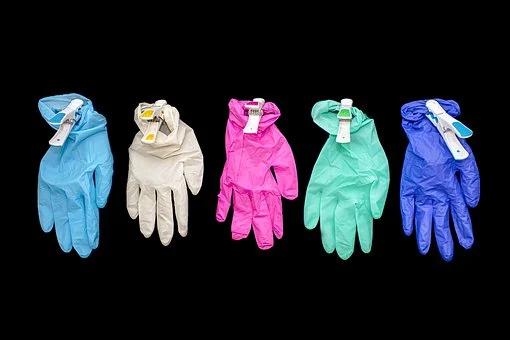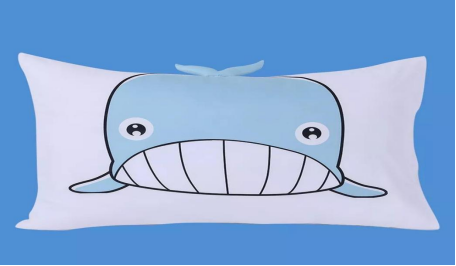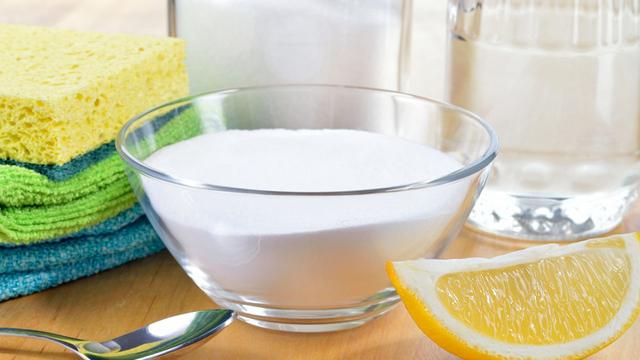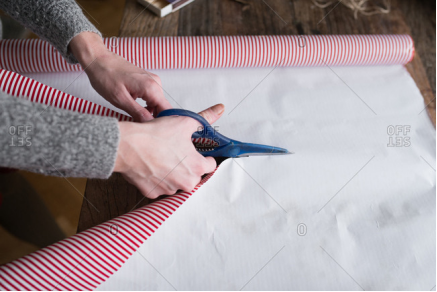Rosie On The House
Arizona’s extreme heat and blast-furnace sun can wear down outdoor surfaces. In addition to our low humidity (except during monsoon season), and quickly fluctuating temperatures, outdoor furniture, and other surfaces take a beating and without proper care, they show it.
Rather than buying new outdoor furniture, try your hand at restoring them. In most cases, it will cost considerably less, and you can save the pieces that you really enjoy.
Cleaning basics
Before you lay one soapy finger on the furniture or flooring check the manufacturer’s manual and warranty papers first.
Follow the manufacturer’s guidelines and only use products and techniques they recommend. Otherwise, you may cause damage and void the warranty.
If you do not have the paperwork, contact the manufacturer or store where it was purchased.
General cleaning tips:
•Gently sweep surfaces using a soft-bristle brush and rinse with water.
•Combine 1/4 cup mild dishwashing liquid with one gallon warm water. Use a sponge or a soft-bristle brush to scrub the furniture’s surface thoroughly. Rinse and pat dry with a lint-free cloth. We like the JAWS Microfiber Cloths.
•Do not power-wash, use chlorine bleach, pine oil, or abrasive cleansers unless directed by the manufacturer.
•Test new solutions on a hidden area.
Wood
Furniture: Wood can be tricky. You need to determine whether the surface is actual wood or laminate.
If it is laminate, clean with the solution noted above and a sponge or a soft-bristle brush to gently scrub the surface. Rinse and pat dry with a lint-free cloth.
Restoring: Teak wood furniture, which many luxury outdoor items are made of, is extremely durable. Yet, it should be refreshed every few seasons. Use a cleanser especially for teak, follow up with a light sanding and then apply teak oil with a spray bottle, brush or rag and let it dry for one hour. Wipe dry and apply a second coat.
Among the products we like to clean wood surfaces are JAWS Hardwood Cleaner.
Maintaining: Avoid placing wood furniture near a direct heat source. Use covers, coasters, and pads to protect wood finish from heat or wet surfaces.
Decking: Scrubbing your deck on top and between boards can remove dirt, fungi, moss and mildew, and stains. Do not use cleaning products designed for sheet vinyl or tile floors on wood or laminate. Do not wet-mop wood or laminate. Standing water can dull the finish, damage the wood, or delaminate the laminate floor. Wipe up wet spills quickly with a slightly damp towel. Do not use a vacuum with a beater bar.
Restoring: Use a stiff brush and a cleaner designed specifically for wood decks. Do not use chlorine bleach. It can drain the color out of the wood. Do not pressure wash. It can cause the wood to splinter and erode.
If the stain is flaking off, you might need to strip it. Stain and finish removers formulated for wood easily and quickly remove oil or latex stains, including clear stains.
After cleaning and drying, seal it with a protective, water-repellent finish. Consider Sherwin-Williams SuperDeck stains and coatings. Stain the wood first to enhance the color or use a transparent finish to highlight the natural wood color while protecting the wood. Choose a finish with an ingredient that impedes mildew growth.
Maintaining: You may need to repeat this process once a year, even if the manufacturer of the finish says you can do it every few years. In central and southern Arizona, the heat and sun wear the finish off quickly. The climate in northern Arizona is tough on finished wood, too.
Wicker
Natural wicker furniture is traditionally constructed from rattan, split reed, or coated paper. Sometimes it is reinforced with metal. Coats of clear varnish, paint or a combination of the two are often applied to protect the surface.
Restoring: To remove dirt and debris, vacuum with a dust-brush attachment or use a dry paintbrush. Sand lightly with fine-grit sandpaper to remove peeling paint or stray fibers. To thoroughly clean, wipe with a mixture of 25 percent white vinegar and 75 percent water, then wipe again with plain water.

If weaves are damaged or broken, repair them with wood glue such as Titebond or Loctite. Allow the glue to dry before cleaning with the mild soap solution. Avoid using too much water, which can weaken the fibers. Dry and touch-up paint as necessary. For unpainted furniture, apply tung oil after washing and drying to protect them from the elements and provide a deep, rich protective finish.
Maintaining: Wicker requires thorough cleaning twice a year. Sunlight is the primary enemy of wicker. Always cover wicker furniture if you intend to leave it outside for more than two or three weeks.
Metal
Iron, steel, and other metals, except aluminum are subject to rust. To protect it, metal furniture is usually finished with layers of clear varnish, paint, or a durable powder coating.
Restoring: Remove loose paint, rust, or mold with a stiff wire brush. Then sand with fine-grit sandpaper edges until smooth.
Using the mild soap solution, scrub, rinse, and dry. If touch-up paint is needed, try to get it through the manufacturer. Apply in several thin layers. Let dry between coats.
If you want to repaint the whole piece, first apply an oil-based primer such as Rust-Oleum Clean Metal Primer. Follow up with one of the many colors available from Krylon. Both can be found in most home improvement stores. Because humidity may affect the paint, work on a dry day (which is any day other than in July and August in Arizona).
Maintaining: After cleaning, apply a coat of high-quality liquid or paste auto wax with a lint-free cloth if recommended by the furniture manufacturer. Use a silicone spray to lubricate swivels and glides on chairs, and ribs and poles on umbrellas. Regularly inspect for rust or chips including hidden areas where the surface may be unfinished.
Fabric
Fabric for outdoor use is called performance fabric. It is solution-dyed and woven with pigment-infused fibers designed to resist sun damage, stains, moisture, and mildew. It is less prone to fading and can better withstand aggressive cleansers than printed or piece-dyed cloth. Not sure you have? Look at both sides of the fabric. If they are identical, it’s probably solution-dyed.
Restoring: Removable covers can usually be machine-washed in cold water with mild, bleach-free laundry soap then air-dried. But check the label before you toss it in the washing machine. To hand-wash, submerge the fabric in a solution of 1/4 cup gentle liquid soap mixed with one-gallon lukewarm water and swish gently. Rinse and air-dry.
Maintaining: Regularly brush dirt and debris away, and rinse as needed. Wipe spills and stains (especially sunscreen) immediately with a wet cloth and the mild soap solution. Some fabrics have a water-repellent finish (check care guide) that loses effectiveness over time. To restore repellency, clean and dry the material, and then apply a fabric protector, such as 303 High Tech Fabric Guard (not suitable for vinyl or plastics). Let dry between coats. Repeat once a year or whenever water stops beading on the surface.
Plastic
Resin or all-weather furniture is generally made from polyvinyl chloride (PVC) or polyethylene (PE). These plastics are manufactured with chemical additives, including ultraviolet stabilizers and fungicides, and can be shaped to mimic wood, wicker, and items such as woven chair straps and slings.
Restoring: Using the mild soap solution, scrub, rinse, and dry. For tough stains or mildew, mix 10 parts water to one part chlorine bleach providing the care guide lists bleach as an approved cleaning agent.
Maintaining: Sunscreen can cause discoloration. Be sure to wipe the furniture with a wet cloth and a mild soap solution soon after exposure.
Concrete, pavers and overlay
Concrete, pavers and overlay is made from stone, which is porous and can quickly absorb stains.
Restoring: If there is grease under the barbecue, use a degreaser first. Then use a pressure washer with detergent to finish stain removal. There is a specialized circular-motion floor scrubbing power washer that will likely need to rent.
Seal the concrete surface with a sturdy topcoat. An unsealed concrete floor will absorb food stains and is susceptible to fading and absorbing water, which can discolor the surface. If the concrete is damaged, stained, or you want to change the color, you may have to put down a “scratch coat,” an overlay made from modified polymer concrete.
Do not wax an outdoor floor. The sun will burn off the wax.
Maintaining: Reseal your outdoor floor every one to two years. Resealing is not the same as waxing.
Another note about power washing: Remember the toxicity of whatever you use will be getting rinsed into your landscaping — observe all warning labels!
Carefully read the power washer’s instructions. These devices can damage bricks, pavers, or concrete if you use too high a setting in the cleaning process. Wear rubber gloves, eye goggles, and rubber boots to prevent injury. Once the surface clean, use a sealer to help prevent future staining on the concrete surface.
When power washing, always start at least 24 inches off the surface. Many DIYers actually do more harm to surfaces by getting the nozzle too close to the surface for a “really good clean.”But they are actually damaging the surface.
Don’t let all the elbow grease go to waste. Cover outdoor furniture when they will not be in use for long periods or when a storm is expected. If possible, store them indoors.
Join Rosie on the House every Saturday morning from 8 a.m.-11 a.m. on KTAR News 92.3. If you’d like to send us questions or comments, email mailto:info@rosieonthehouse.com. Follow us on Twitter and “Like” us on Facebook. For more do-it-yourself tips, go to rosieonthehouse.com. An Arizona home building and remodeling industry expert since 1988, Rosie Romero is the host of the syndicated Saturday morning Rosie on the House radio program. Call 888-767-4348 with questions and comments.







